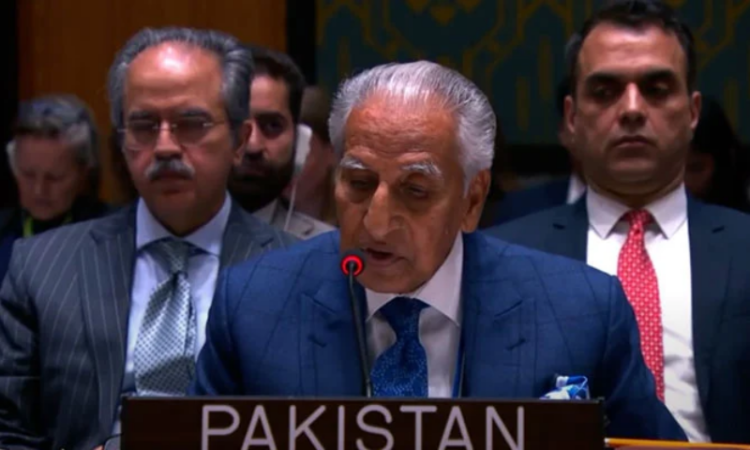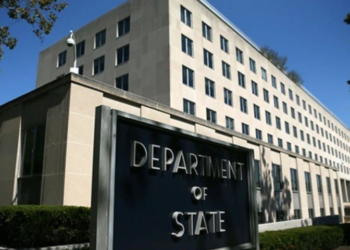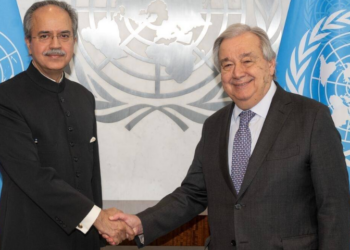United Nations, March 25, 2025: Pakistan has called on the United Nations Security Council (UNSC) to uphold its resolutions and facilitate a UN-supervised plebiscite, granting the Kashmiri people their right to self-determination.
Addressing a high-level Council debate on “Maintenance of International Peace and Security: Advancing Adaptability in UN Peace Operations — Responding to New Realities”, Pakistan’s Minister of State for Foreign Affairs, Tariq Fatemi, emphasized the need for the UNSC to fulfill its commitment to resolving the longstanding Kashmir dispute.
“It is the responsibility of this Council to ensure that the Kashmiri people realize their right to self-determination and to promote a just and lasting settlement of the Jammu and Kashmir dispute by implementing its own resolutions,” Fatemi stated.
He reminded UNSC members that the Kashmir issue remains unresolved in accordance with past resolutions that promise a plebiscite under UN supervision. Stressing the importance of addressing the root causes of conflicts for lasting peace, he noted that Pakistan continues to host the United Nations Military Observer Group in India and Pakistan (UNMOGIP), which has monitored the ceasefire along the Line of Control (LoC) since 1949.
Fatemi also highlighted Pakistan’s longstanding role in UN peacekeeping efforts, noting that the country is among the leading troop contributors and a founding member of the UN Peacebuilding Commission.
while giving details of the key contributions of Pakistan, Tariq Fatemi said that 235,000 Pakistani peacekeepers deployed across 48 UN missions worldwide, 181 Pakistani peacekeepers have sacrificed their lives in service of global peace and over 3,267 Pakistani men and women currently serving in seven UN missions.
Pakistan is set to host the UN Peacekeeping Ministerial Preparatory Meeting in Islamabad from April 15 to 16, where discussions will focus on enhancing UN peace operations.
Fatemi presented several recommendations to enhance the effectiveness of UN peace missions:
- Mandate Alignment – Peacekeeping operations should be tailored to on-ground realities for better execution.
- Political Solutions – Deployments must align with clearly defined political objectives, prioritizing diplomatic resolutions.
- Resource Allocation – Adequate resources and modern equipment should be provided to peacekeepers to address emerging threats.
- Training & Technology – Troops must receive appropriate training to counter new security challenges, including the weaponization of advanced technologies.
- Integrated Peace Approach – Peacekeeping should be part of a broader, continuous peace-building strategy in collaboration with the UN Peacebuilding Commission.
Emphasizing the need for unified and consistent support from the UNSC, Fatemi urged member states to reinforce peacekeeping operations, ensuring they effectively fulfill their mandates.








